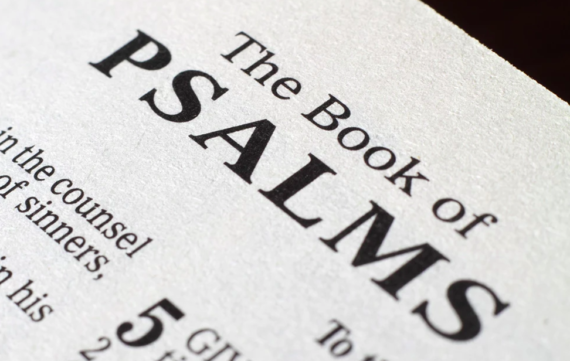Psalm 22
It is normally best to examine the original context of an Old Testament passage before looking at the New Testament use of the passage or at its application in our own lives. But in the context of this series of brief articles on the Psalms, that will not always be possible.
The darkest moment in history came when Jesus used the words of this psalm. “Eloi, Eloi, lema sabachthani?” (Mk 15:34)






The cry of dereliction was real. Jesus was not just quoting scripture. He was really feeling the despair of separation from the Heavenly Father.
Yet, he was quoting scripture. In using the words of scripture to express his sense of abandonment, he was pointing us toward certain critical truths.
Fully human
First, he is reminding us that he fully entered into our experience of human life. Hebrews 4:15 tells us, “For we do not have a high priest who is unable to sympathise with our weaknesses, but one who in every respect has been tempted as we are, yet without sin.” Jesus knew what it was to feel abandon. Worse than pain, worse that fear, worse than anything is the feeling that God does not see or care. Jesus experienced that. The feeling that there is no hope and no purpose to our pain is devastating. But sometimes we feel it.
Many of God’s servants have experienced this illusion: Moses, Elijah, Jeremiah, John the Baptist, whoever wrote this psalm, and Jesus all experienced this sense of dereliction.
Tell the truth
Second, Jesus’ use of this psalm teaches us that it is proper that we express our true feelings to God. Nothing is held back here. What the writer of Psalm 22 says, and Jesus says, is what was truly on his mind.
The same can be seen in Jeremiah, especially chapter 20. Jeremiah is wrong in some of what he says to God, but he is not wrong to say it. We must always be honest with God. Even when what we are thinking is wrong, we might as well admit that we are thinking it. This is often the first step toward correction of our thinking.
Historical review
Third, Jesus may be pointing us toward historic review as part of the healing process. Jesus chose his words to point us to this psalm. In Psalm 22 we find one who is in despair reviewing the national history (3-5), and his personal history (9-10).
When we are troubled, remembering the past is helpful. An accurate knowledge of the past puts our current problems in perspective. Occasionally we hear people speak of the current conflicts in the world, and the current economic woes of the world, as if we are experiencing something previously unknown. Such talk has become common. Why? In part because the generation that experienced the economic difficulties of the 1930s and the wars of the 1940s has nearly all passed. Were they alive, they might well laugh the alarmism to shame.
Those who know the biblical history well will not be surprised at setback, defeats, or suffering. They will instead expect these things. If our spiritual ancestors experienced such, if our Lord himself experienced such, we will certainly not be exempt.
Unanswerable certainty
Finally, Jesus is pointing us to a passage that concludes with unanswerable certainty. Jesus only quoted the opening of the psalm, but he intended that those who heard him might recite it to the end.
“For kingship belongs to the Lord, and he rules over the nations. 29 All the prosperous of the earth eat and worship; before him shall bow all who go down to the dust, even the one who could not keep himself alive. 30 Posterity shall serve him; it shall be told of the Lord to the coming generation; 31 they shall come and proclaim his righteousness to a people yet unborn, that he has done it.” (28-31)
Even the one who “cannot keep himself alive” will have the opportunity to bow before God (29). Even in the midst of defeat and death, Jesus is pointing us to a passage that proclaims, “God has done it.”
Of all the unchristian beliefs that are accepted today, perhaps the most unchristian is the notion that a life of suffering and an early death indicate defeat. It was not so for Jesus, and it need not be so for us. The Christian dying young has victory. The non-Christian living to 100 is the one we should pity.
Raise the standard
This is not an approach to pain and suffering that we model well. But it is the approach the psalm teaches and that Jesus modelled in his use of the it. It is not a current reality for most of us, but it is the ideal we should be seeking.
We will not develop this approach to suffering by surrounding ourselves with every luxury within our reach. We will not develop it by focusing on this world. We will have to devote a larger portion of our week to the contemplation of the eternal if we wish to develop this point of view.
It will not be easy, but it can be done. And when it is done, we will know (even in defeat, suffering, and death) that ‘God has done it.’

